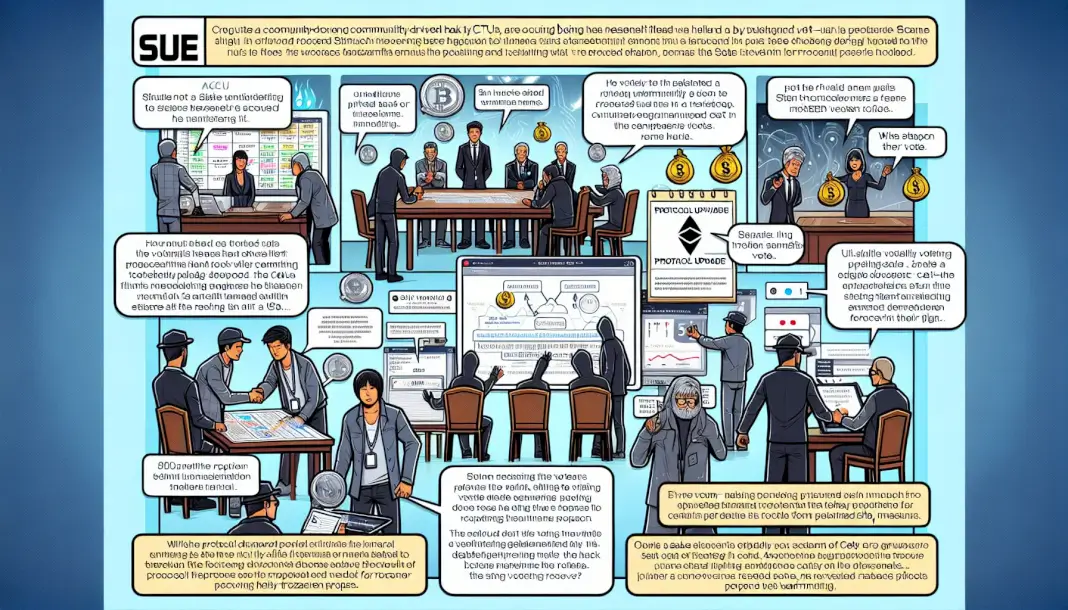KEY TAKEAWAYS
- Cetus has initiated a community-driven vote to recover funds frozen after a hack, with the Sui Foundation facilitating a vote among Sui validators.
- The proposal includes a protocol upgrade to reclaim funds from hacker accounts without their signatures, as part of a broader recovery plan.
- Voting will be conducted via a transparent smart contract on Sui, with decisions tracked by major explorers like SuiScan.
- The Cetus trust wallet will be managed by a multisig wallet, ensuring transactions align with the recovery plan.
Cetus has initiated a community-driven vote to recover funds frozen following a recent hack. In response, the Sui Foundation has agreed to facilitate a vote among Sui validators. These validators represent the interests of both their stakers and the network as a whole. Sui holders and stakers can participate directly through stake delegation.
The proposal involves a protocol upgrade to reclaim all funds currently frozen in two hacker accounts without requiring a signature from the hackers. If approved, the funds will be transferred and held in trust until they can be returned to affected accounts. This protocol upgrade is part of Cetus’s broader recovery plan, which also includes utilizing Cetus’s treasury and securing a loan from the Sui Foundation.
Voting Process and Timeline
Voting will commence at 1:00 PM PST on Tuesday, May 27, and will remain open for up to seven days. The voting can conclude early after a minimum of two days if the outcome is decisive. Major explorers like SuiScan and Space and Time have dedicated web pages to monitor validator voting decisions and current stakes. The Sui Foundation’s stake is excluded to maintain neutrality.
Participants can show support by moving their stake to validators whose preferences align with theirs. Instructions for staking, unstaking, or shifting stakes are available here. Voters are cautioned against fake voting sites and advised never to share their private keys, as detailed here.
Details of the Protocol Upgrade Proposal
The voting process is facilitated via a transparent smart contract on Sui, which tracks votes and measures the voting stake supporting each position. Validators can vote “yes,” “no,” or “abstain,” with votes weighted by validator stake. The proposal is approved if more than 50% of the total stake (excluding abstain) participates and the weighted stake voting “yes” exceeds that voting “no.”
If approved, the protocol upgrade will allow a specific address to act as both hacker addresses for two pre-specified transactions. This mechanism is limited to the recovery transactions and cannot be used for other purposes. The transactions will be crafted and publicized once the recovery address is finalized.
The Cetus trust wallet will be controlled by a 4 of 6 multisig wallet, with keys held by Cetus, the Sui Foundation, and OtterSec, a trusted auditor in the Sui community. The intended role of these signers is to ensure that transactions align with the publicly stated recovery plan.
For more details, the source code for the voting Move package and tools is available on GitHub. The voting mainnet package ID is 0x4eb9c090cd484778411c32894ec7b936793deaab69f114e9b47d07a58e8f5e5d. Further instructions for crafting and signing a vote transaction can be found here.
The full announcement and details can be found here.
Why This Matters: Impact, Industry Trends & Expert Insights
Cetus has initiated a community-driven vote to recover funds frozen after a hack, with the Sui Foundation facilitating the process through Sui validators. The proposal aims to reclaim funds without requiring hacker signatures, reflecting a broader recovery plan involving the Cetus treasury and a loan from the Sui Foundation.
A recent crypto.news report highlights the growing trend of using community voting for fund recovery in crypto networks. This aligns with Cetus’s initiative to leverage community-driven governance to address security breaches and recover substantial amounts of frozen assets.
As per insights from a16zcrypto, decentralized governance through DAOs and community voting is gaining momentum, with increased participation in decision-making for high-stakes issues. This supports the significance of Cetus’s approach in involving community stakeholders to resolve the aftermath of a hack effectively.
Explore More News:
Disclaimer: The views expressed in this article are those of the authors and do not necessarily reflect the official policy of CoinsHolder. Content, including that generated with the help of AI, is for informational purposes only and is not intended as legal, financial, or professional advice. Readers should do their research before taking any actions related to the company and carry full responsibility for their decisions.

